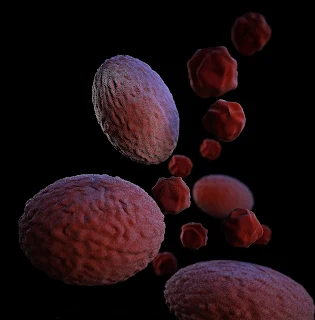Syphilis and Addiction
The Connection Between Syphilis and Addiction

A connection between drug use and high syphilis rates in the United States was established by a recent report released by the Centers for Disease Control and Prevention (CDC). Sarah Kidd, the lead author of the report, pointed out that two major health issues, syphilis in heterosexual men and women, and drug addiction, seemed to be converging.
The report showed that syphilis in heterosexual men and women was linked to drug use. According to the report, the use of heroin, methamphetamine, and other injection drugs by this group nearly doubled from 2013 to 2017.
However, the report did not show a similar increase in drug abuse among gay men suffering from syphilis. Researchers indicated that risky sexual behaviors associated with drug abuse might be one of the key factors driving this increase in syphilis among the heterosexual population.
Drug Use and Unsafe Sexual Practices
Experts noted that people abusing drugs are more likely to engage in unsafe sexual practices, making them more susceptible to sexually transmitted diseases (STDs). Syphilis significantly increased among heterosexuals during the 'crack cocaine epidemic' in the 1980s and 1990s. During this period, drug use was linked to higher syphilis transmission rates.
According to Patricia Kissinger, a professor of epidemiology at Tulane University, individuals abusing drugs often engage in unprotected sex, exchange sex for money or drugs, and have multiple sexual partners. These are significant risk factors for the spread of syphilis.
Rising Syphilis Rates
At the national level, syphilis cases increased by about 73% overall and 156% among women between 2013 and 2017. Though syphilis had nearly been eradicated, its resurgence has been most pronounced in California, Louisiana, and Nevada. Syphilis can be treated with antibiotics, but if left untreated, it can cause organ damage and, in some cases, death.
In women, congenital syphilis occurs when an infected mother passes the disease to her unborn child, often leading to premature birth or stillbirth. A study revealed that methamphetamine abuse was a major contributor to the increase in syphilis cases between 2013 and 2017. More than one-third of women and a quarter of heterosexual men with syphilis reported methamphetamine use in the past year.
Challenges in Treating Syphilis
The overlap between substance abuse and sexually transmitted infections (STIs) makes it challenging to diagnose and treat syphilis. People using drugs are less likely to visit a doctor or report their sexual activities or partners.
Pregnant women may also avoid seeking prenatal care or testing for syphilis due to concerns about their drug use being reported. To address these issues, the CDC urges increased collaboration between substance abuse treatment programs and STI prevention programs.
Fresno County's Syphilis Outbreak
Fresno County in California reported the highest rate of congenital syphilis in 2017. The county's public health department found that more than two-thirds of the women with congenital syphilis were also abusing drugs. In response, the county implemented measures such as offering STD testing to patients entering inpatient drug treatment centers. They also incentivized patients to return for their results with gift cards.
The Need for More Resources
While collaboration between STD clinics and drug treatment providers is essential, it is not always easy because these two entities have not traditionally worked together. According to Jeffrey Klausner, a professor at UCLA, more resources are needed to fight rising syphilis rates. Programs focused on syphilis testing must be accompanied by adequate resources.
Seeking Help for Drug Abuse
Drug abuse is often linked to the development of conditions like hepatitis C, HIV, syphilis, and other STDs. These infections can cause rapid deterioration of overall health. The best way to avoid contracting these diseases is to avoid drug use, and if addicted, to seek help as early as possible.



